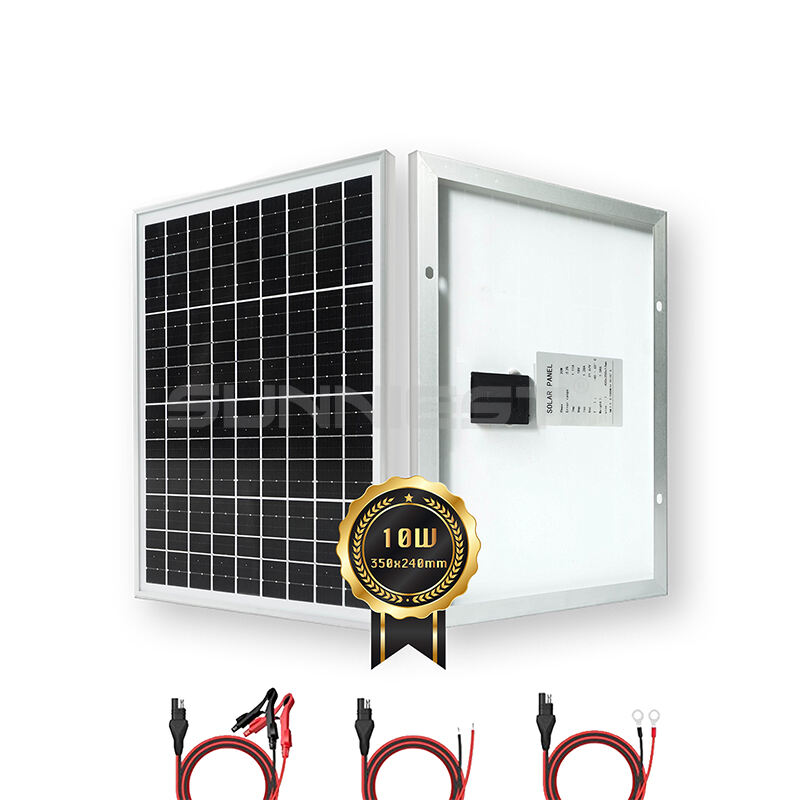Did you ever wonder how the solar panels work? Just like plants, solar panels are specialized devices that convert the energy in sunlight into usable electricity. They are more popular because they offer growing clean energy. This means they are non polluting energy sources thus do not release the harmful gases which spoil our air and environment. Benefits of solar panels Not only does using solar panel save the planet, but it also gives back to mother nature by utilizing the powerful energy from our eternal sun!
If you compare flexible solar panels with regular rigid panels, there are a few key aspects to consider. Flexible solar panels are thin, lightweight material that can flex and contour to many different structures. This is very helpful since it ensures they can be installed in areas that could not fit normal panels. In comparison, simplely are composed of a durable heavy glass or metal and do not flexocrack. They are solid, but they require installation on even ground.
Pros + Cons with Flexible and Rigid Solar Panels
We shall weigh the pros and cons of each flexible vs rigid solar panel. Flexible panels are easier to install, as they can fit on curved surfaces. Stuffed with most for boats or rvs those don't have the shape that regular panels could work on. Flexible panels may not be as efficient at generating electricity and they might also degrade more rapidly over time, though. The flexible panels are extremely slim, whereas the rigid ones are very solid and capable of sustaining worse weather conditions (heavy rain or strong winds). However, they do require a flat surface for install as heavier units.
Which is Best: Rigid or Flexible?
Thus, which type of solar panels will be better for you? This is a tough one to answer, because it depends on your use case for the panel. In case you want them to be mounted where there is a curve surface, or if it will be installed on an RV and boat then the flexible panel wins. They mould conveniently to various lengths and are highly versatile as well. Meanwhile, if you need a very weather-resistant solar panel that must be placed on an uneven surface, the space-saving rigid one is perfect. We have determined from the initial reviews that a lot of review mentions mention out there imply these moved/flexible solar panels arent rather as efficient at producing energy so might not be great for stationary area.
Types of Solar Panels
So now, we shall discuss the types of solar panels. The major types are: Thin-film and crystalline panels. Advantages of thin film solar panels: The lightweight and flexible material that is adhering to any shape. But they are typically not as good at converting sunlight into electricity, and may degrade faster over time. Crystalline panels, on the other hand are made of silicon and tend to be more efficient than thin-film panels. Because, they are also heavier and less flexible so that thin-film panels can not able to bend like monocrystalline.
For the rigid Bluetti panels, they are also made from crystalline silicon but shelled in a durable glass or metal frame. This makes them more power efficient and lets them keep going this up to 25 years! But due to their design they are stiffer and need an even surface for installation.
How to Select the Best Solar Panel For You
To help you with your purchase, it would depend on what the panel is for when determining if a flexible or rigid solar panel. For a curved surface such as on a boat or RV, Solar panel for those areas have to be flexible. They are fitted for those irregular shapes. For a solar panel for home or business that will be in a fixed position, you would want to go with rigid panels. High efficiency and long term power production as panels are made up of rigid components.
Consider also how well the panel functions and how long it will last. A rigid panel is the ideal choice for you if all need a long-lasting, good performing and durable solution. If you don't mind losing a bit of efficiency and lifespan for the ability to bend/stretch into tight places, choose flexible panel.
In Summary
All in all, to compare flexible solar panels VS rigid panel is that you need to differentiate between flexibility and robustness. Flexible panels are great for some applications because they can bend to a curved surface and are less expensive. Consequently, while solid panels work much better and yet last longer than before if they are not moving anywhere. Depending on your priorities in a solar panel, breaking down what you need can be the biggest factor of all when determining how to choose between flexiness and efficientness. This information will allow you to make an educated decision on what type of solar panel is best for you!

